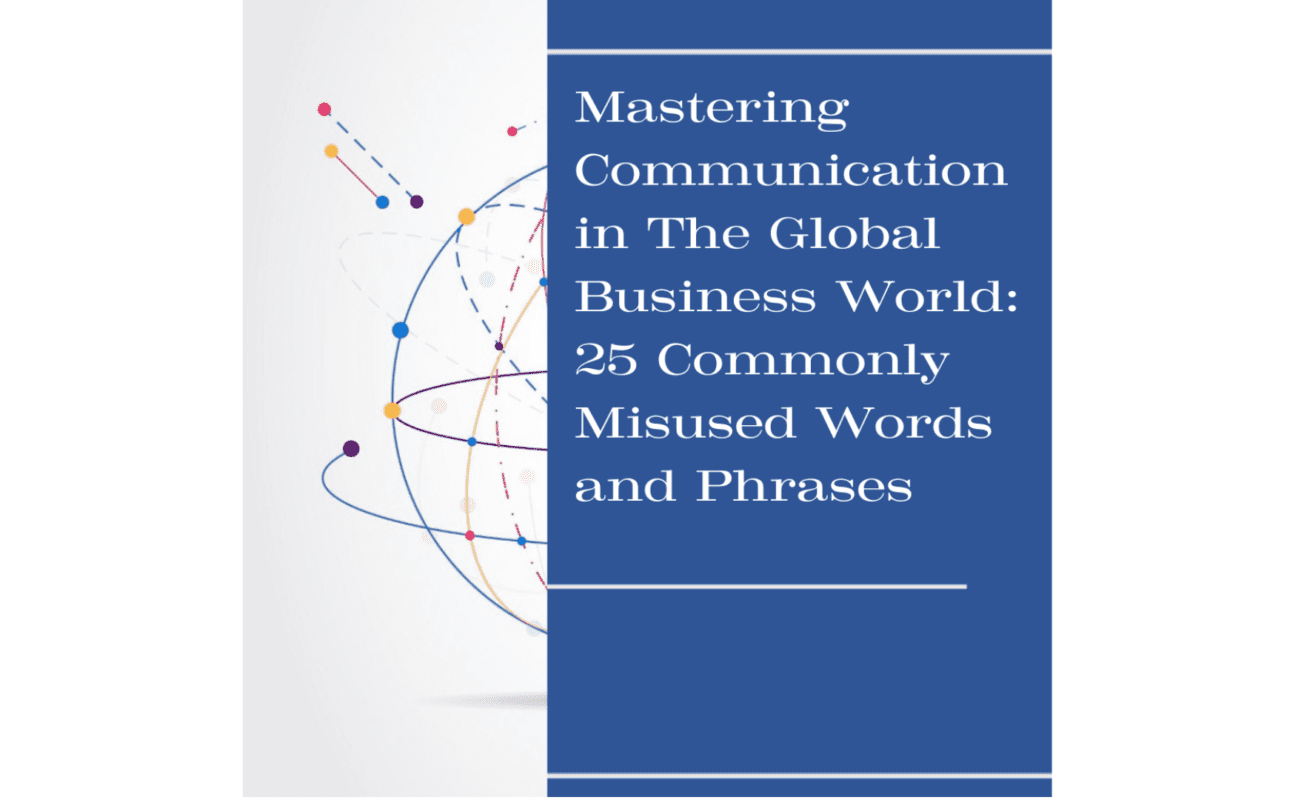Blog
Mastering Global Communication Skills Cheatsheet
Mastering Global Communication Skills Cheat Sheet: 25 Misused Words to Avoid in Workplace
In today’s interconnected world, mastering global communication skills is no longer a luxury, but a necessity. Global collaboration, overseas negotiations, or network expansion all demand effective cross-cultural communication. It’s paramount for success in today’s interconnected world. This isn’t just about speaking the same language; it’s about understanding the nuances of communication, avoiding common pitfalls, and building genuine connections. Our comprehensive cheat sheet, “25 Misused Words to Avoid in the Workplace,” is designed to be your essential guide in this journey. It provides practical tools to elevate your communication prowess.
Ditch the Jargon
One of the foundational elements of mastering global communication skills is understanding the intricacies of the English language, particularly in a professional context. Confusing word pairs like “affect” and “effect,” or “imply” and “infer,” can lead to significant misunderstandings, potentially damaging your credibility. This cheat sheet meticulously breaks down these commonly misused terms, providing clear explanations and examples to ensure you use them correctly. By eliminating these linguistic errors, you’ll project an image of professionalism and competence. This will help you in fostering trust and respect among your colleagues and clients. It’s not just about avoiding mistakes. It’s about enhancing your clarity and precision, ensuring your message is delivered as intended.
Furthermore, mastering global communication skills requires a conscious effort to avoid jargon and industry-specific terminology that might alienate or confuse your audience. In a diverse workplace, where individuals come from various backgrounds and expertise levels, using plain, accessible language is crucial. This cheat sheet encourages you to ditch the buzzwords and adopt a communication style that is inclusive and easily understood. By simplifying your language, you’ll not only enhance clarity but also demonstrate respect for your audience’s time and understanding. This approach fosters a more collaborative and productive environment, where everyone feels valued and included.
Cultural Sensitivity
Finally, and perhaps most importantly, mastering global communication skills necessitates cultural sensitivity. Understanding and respecting cultural differences is essential for building strong relationships and avoiding misinterpretations. This cheat sheet provides valuable insights into adapting your communication style to different cultural backgrounds, helping you navigate potential cultural pitfalls. By being mindful of cultural nuances, you’ll demonstrate empathy and respect, building bridges rather than barriers. This sensitivity is crucial for fostering trust, building rapport, and achieving your business goals in a globalized world. By implementing the strategies outlined in this cheat sheet, you’ll be well on your way to becoming a proficient global communicator, capable of navigating the complexities of cross-cultural interactions with confidence and ease.
Grab your Free PDF Cheat Sheet

